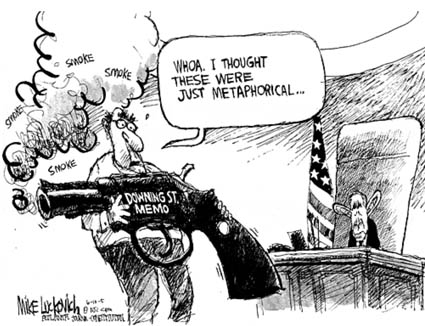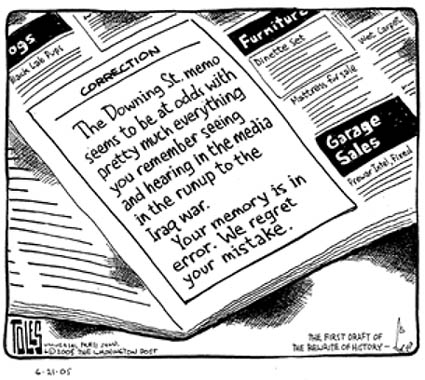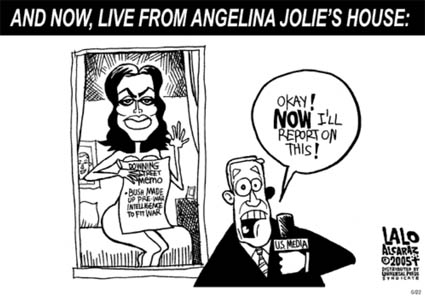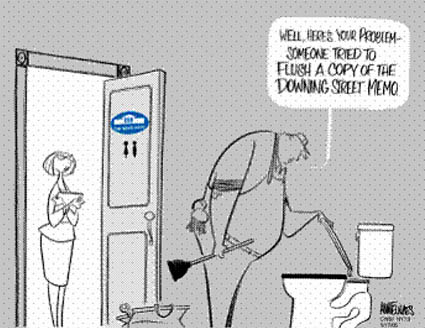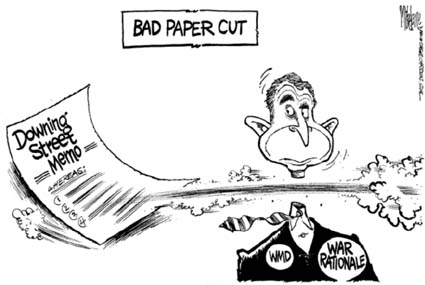The Downing Street Memos rocked both the Bush and Blair administrations with their allegations that the intelligence that took the US and Britain to war in Iraq was fixed to persuade the voters it was right to oust Saddam Hussein. There were nine memos in total.
They got their name because they included the minutes of a meeting of Tony Blair’s war cabinet held in Downing Street at which both the willingness to fake the intelligence and the secret air war to provoke Saddam into providing an excuse for war were laid out.
This is the Daily Telegraph front page story on the original six documents leaked to me in September 2004.
This Daily Telegraph story uses the documents to track the advice given to Tony Blair by senior officials in the month leading up to the Crawford summit with President George W Bush in April 2002. It was not until I received the second batch of documents at the Sunday Times that it became clear that, despite all that advice, Blair had agreed at Crawford to back US plans for regime change in Iraq, something that was illegal under UK interpretation of international law.
This is how the Sunday Times broke the front page news of the so-called “Downing Street Memo”, the minutes of a meeting of Tony Blair's war cabinet held in Downing Street on 23 July 2002.
This is the inside story on that crucial Downing Street meeting of Blair’s war cabinet several months before either Congress or the UK Parliament agreed to go to war.
How the news emerged about the Downing St Memos.
The Downing Street Memo led to confirmation that the allies had begun the air war against Iraq in May 2002, shortly after the Crawford summit, without legal backing from either the UN or Congress, as I explained in this oped article for the LA Times.
This is a more detailed account on the secret air war that I wrote for New Statesman.
This is an internet discussion held on the Washington Post website in which the paper's readers asked questions about the Downing Street Memos.
An interview on the excellent US National Public Radio programme Fresh Air, hosted by Terry Gross, in which
we discussed the Downing Street Memos.
The failure of the Senate intelligence committee, under the then chairmanship of Republican Senator Pat Roberts, to hold a proper hearing into the administration's manipulation of intelligence ahead of the Iraq War is a measure of how easily democracy can be subverted. But the Senate Democratic Policy Committee, which is part of the Democratic leadership in the US Senate, did hold a hearing, with those giving evidence including Carl Ford, former Assistant Secretary of State for Intelligence and Research and Paul Pillar, the former National Intelligence Officer for the Near East and South Asia.
One of the key drivers for the hearing was the Downing Street Memo and the claim by Sir Richard Dearlove, then Chief of MI6, that the intelligence was being "fixed around the policy". As a result, Michael Smith was asked to provide evidence on the significance of the memos to the committee. This is his written evidence.
A discussion of the Downing Street Memos on the US radio programme Open Source.
Cartoons about the Memos
The Downing Street Memos have been the subject of a number of US cartoons, many of them lampooning their own newpapers for failing to report the significance of the Memos.
